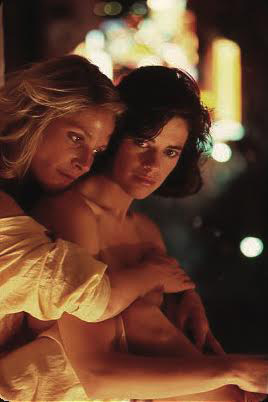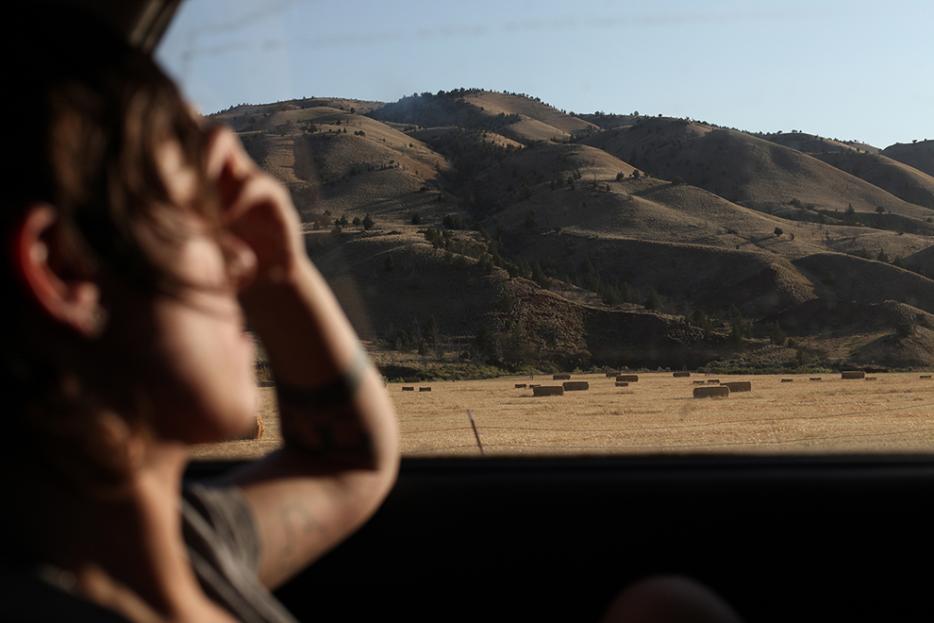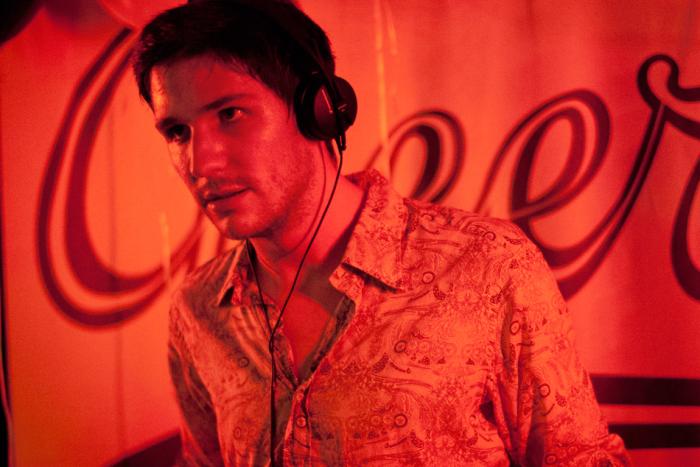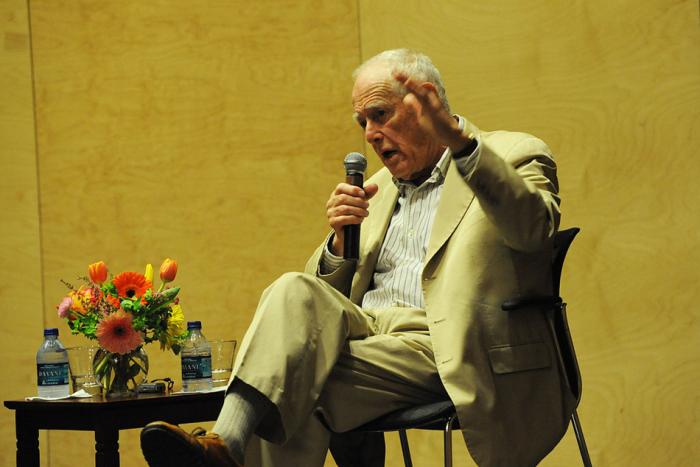Wearing a skirt suit and clutching a brown leather briefcase, Vivian Bell steps gingerly off a train in Reno. It’s 1959 and the New York City English professor has come to Nevada for a “quickie divorce” from her husband.
For the next six weeks, Vivian’s rented a room at the Flatiron Ranch. She plans to lay low, get some work done, then flee, newly single and relatively unscathed. As ranch proprietor Frances Parker drives her from the station through the burnt and blazing landscape of rust-coloured hills dotted with rocks and shrubs, Vivian tells the older woman, "I've always lived in the city. I won't know what to do with all this space.”
Vivian notices the 1957 Ford Fairlane convertible before it appears on screen, passing Frances’s station wagon on a two-lane highway. Tires squeal and a cloud of dust plumes around the car as Cay Rivvers—Frances’s surrogate daughter, who also lives at the ranch—reverses at full speed and begins to drive backwards alongside the older women. Frances, struggling with the steering wheel, shouts an introduction to Vivian.
“Can I call you professor?” Cay yells, amused and inviting behind her aviator sunglasses, wind blowing her dark hair across her face.
In cut-off jean shorts and cowboy boots, Cay Rivvers would look at home on gay beaches and barstools even today. She gives Vivian—in her prim gray suit—a smirking sideways glance. It’s not immediately clear what, exactly, she wants, just that something is on her mind. But any queer woman has likely figured it out: Cay would like to remove Vivian’s dour, professional clothes, unclasp her pearls, and have protracted, emotionally and physically satisfying sex with the older, less experienced professor.
Welcome to the world of Desert Hearts—a film adaptation of Jane Rule’s 1964 novel Desert of the Heart. Before The L Word gave us six seasons of TV about a group of lesbian friends and lovers, before Jennifer Tilly and Gina Gershon robbed and killed a sadistic mobster and escaped in a cherry red pickup truck, before every awkward “lesbian kiss” on primetime TV, there was this affirming, optimistic romance. Desert Hearts was one of the first movies to centre on a female love story that allowed the women to be together, and it was a revelation when it was released in 1985. Before then, most on-screen lesbians had fallen prey to some combination of murder, suicide, vampirism, nervous breakdown, or heterosexuality.
 Desert Hearts burns brighter than most. A friend in her early 30s was once in band named after the movie. The website AfterEllen has interviewed Deitch several times about both the film and the sequel she’s been writing for years. A Facebook page called “Desert Hearts Mon Amour” collects promotional images, quotes about the film from other lesbian directors, and fan art like “Desert Tarts,” a video send up acted out by Barbie Dolls. Not everyone loves the movie, but those who do are serious about it.
Desert Hearts burns brighter than most. A friend in her early 30s was once in band named after the movie. The website AfterEllen has interviewed Deitch several times about both the film and the sequel she’s been writing for years. A Facebook page called “Desert Hearts Mon Amour” collects promotional images, quotes about the film from other lesbian directors, and fan art like “Desert Tarts,” a video send up acted out by Barbie Dolls. Not everyone loves the movie, but those who do are serious about it.
Showing lesbian sexiness without trauma was the movie’s singular accomplishment. Desert Hearts felt good: for the lesbian director who spent years raising the money and writing the script, for the straight women who acted in it, for a generation of younger women who love its retro coziness or how Cay’s legs look in cowboy boots. For Deitch, telling this personal story to a broad audience and striving for universal appeal was an inherently political act. That some critics resented the movie underscores a seemingly unresolvable tension between films seeking wider audiences and those that foster deeper recognition among the communities they represent.
At the end of the film, Vivian is newly divorced and heading back to New York. Cay comes to meet her at the station and their roles have reversed. Vivian is pursuer, entreating Cay.
“Come with me,” she pleads. When Cay resists, Vivian bargains. “Ride with me to the next stop.”
Cay takes Vivian’s outstretched hand climbs onto the train.
Deitch and the actors like to speculate about what happens next. Does she ride with Vivian all the way to New York? Get off at the next stop and return to her life in Reno?
All that’s clear is after the gambling, horseback riding, and sex at the Riverside Casino Hotel is that these two have boarded a train out of the Wild West. They’re headed into the wider world and there are a whole lot of eager women who have come along for the ride.






